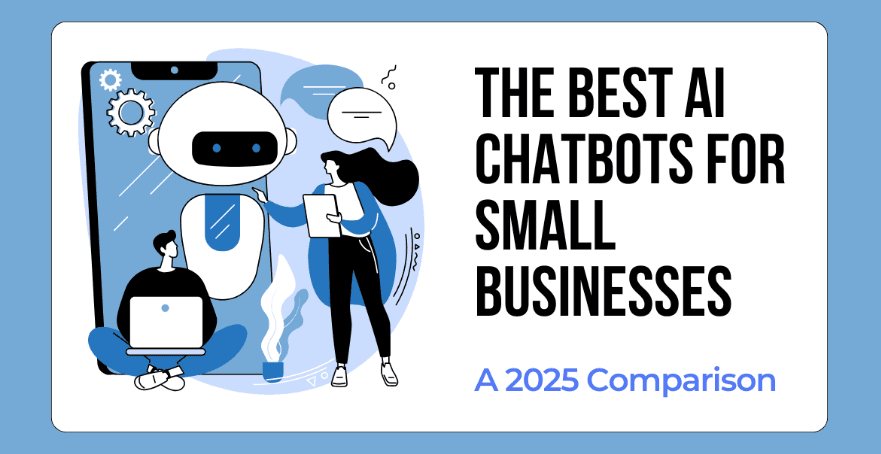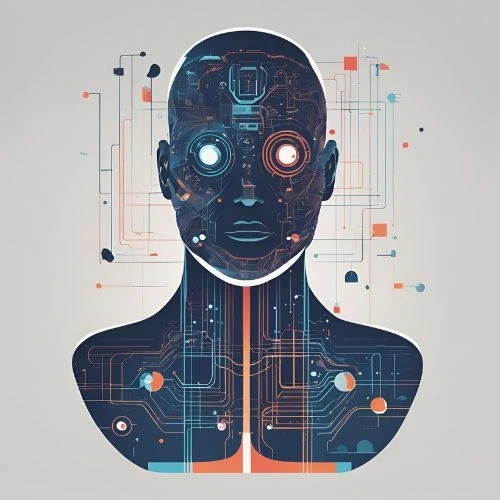What Are AI Agents? A Deep Dive
Oct 24, 2024
Table of Contents
Introduction
Understanding AI Agents
Definitions and Concepts
Key Characteristics
Types of AI Agents
Reactive AI Agents
Limited Memory AI Agents
Theory of Mind AI Agents
Self-Aware AI Agents
How AI Agents Work
AI Models Behind Agents
Learning Algorithms
Applications of AI Agents
Customer Service
Automation in Business
Healthcare
Finance
Challenges and Ethical Considerations
Future of AI Agents
Conclusion
Introduction
Artificial Intelligence (AI) has rapidly transformed numerous industries, with one of its most innovative and versatile forms being AI agents. AI agents are systems that perform tasks autonomously or semi-autonomously, interacting with their environment to achieve a goal. From virtual assistants to customer service chatbots, AI agents are at the forefront of AI-driven applications. This article delves into the concept, types, working mechanisms, and future of AI agents.
Understanding AI Agents
Definitions and Concepts
An AI agent is a software system that perceives its environment through sensors, processes that information, and takes actions using actuators to achieve specific objectives. They are designed to interact autonomously with their surroundings and make decisions based on input data.
AI agents can range from simple, rule-based systems to highly sophisticated models employing machine learning and neural networks.
Key Characteristics
AI agents typically possess the following traits:
Autonomy: They operate without human intervention.
Reactivity: They can perceive and respond to changes in the environment.
Proactivity: They pursue goals by taking initiative.
Social Ability: They interact with humans or other agents.
Types of AI Agents
Reactive AI Agents
Reactive agents are the simplest form of AI agents. They respond to the environment in real time but lack memory and the ability to learn from past experiences. These agents are used in applications requiring immediate response, like chatbots for straightforward customer inquiries.
Limited Memory AI Agents
These agents can retain information about their previous interactions for a limited time. They use this temporary memory to make better decisions or predictions. Examples include self-driving cars that use data from the past few seconds to make navigational decisions.
Theory of Mind AI Agents
Theory of Mind agents are more advanced and are still in the research phase. These agents would be able to understand human emotions, thoughts, and intentions. They aim to interact in a more human-like manner, improving the relationship between humans and AI systems.
Self-Aware AI Agents
Self-aware agents are the hypothetical ultimate evolution of AI. These agents would have a sense of self, consciousness, and understanding of their internal states. While still theoretical, the concept of self-aware AI raises significant ethical and philosophical questions.
How AI Agents Work
AI Models Behind Agents
AI agents use a combination of machine learning models, neural networks, and natural language processing (NLP) to perceive their environment, process information, and make decisions. The models depend on the specific application, ranging from decision trees to complex deep learning algorithms.
Learning Algorithms
AI agents typically rely on several learning methods, including:
Supervised learning: Learning from labeled datasets.
Unsupervised learning: Discovering patterns from unlabeled data.
Reinforcement learning: Learning through rewards and punishments based on actions.
These learning methods allow AI agents to improve their performance over time without explicit programming.
Applications of AI Agents
Customer Service
AI agents have revolutionized customer service through chatbots and virtual assistants that handle inquiries, complaints, and troubleshooting. They can provide 24/7 support and often perform tasks faster than human agents.
Automation in Business
Businesses are using AI agents to automate processes like email sorting, scheduling, and data entry. These agents streamline operations and improve efficiency.
Healthcare
In healthcare, AI agents assist in diagnosing diseases, managing patient data, and providing personalized health recommendations. They can quickly analyze large amounts of medical data and offer treatment suggestions.
Finance
AI agents in the financial sector are used for fraud detection, risk assessment, and algorithmic trading. They can monitor transactions and patterns that would be impossible for humans to detect manually.
Challenges and Ethical Considerations
Despite their numerous advantages, AI agents come with challenges and ethical dilemmas, including:
Data privacy and security: AI agents often require access to sensitive data, raising concerns about privacy breaches.
Bias and fairness: Agents can inherit biases from their training data, leading to unfair outcomes.
Job displacement: The automation provided by AI agents can lead to job loss in certain sectors.
Transparency: Ensuring that AI agents' decisions are understandable and explainable is crucial for trust and accountability.
Future of AI Agents
The future of AI agents is promising, with advancements in natural language processing, deep learning, and quantum computing expected to push the boundaries of what these agents can do. As AI agents become more human-like in their interactions and decision-making abilities, their applications will likely expand into more sophisticated and complex tasks.
Some potential developments include:
Improved emotional intelligence: AI agents could better understand and respond to human emotions.
Integration with IoT: Agents could control smart devices more effectively, creating fully autonomous systems in homes and businesses.
Enhanced decision-making abilities: By processing more complex data sets, AI agents could provide insights and predictions across industries.
Conclusion
AI agents are transforming the way we live and work. From simple reactive systems to highly intelligent and proactive assistants, their capabilities are continually growing. While challenges remain in terms of ethics, privacy, and accountability, the potential benefits of AI agents far outweigh the drawbacks. As technology advances, AI agents are poised to become an even more integral part of our daily lives and industries.
Related articles

Customer Service
General
The Best AI Chatbots: A 2025 Comparison
Feb 11, 2025

General
What Is Prompt Engineering?
Oct 29, 2024

Customer Service
Top 3 Prompts for Customer Support AI Agents
Sep 8, 2024
